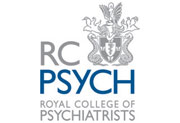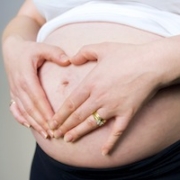Abortion and mental health: is there a link?
 This is a question that has been the subject of many a debate in academia, in politics, in the public square and amongst those directly affected by abortion. In an attempt to provide a more definitive answer the Department of Health and the Royal College of Psychiatrists (RCPsych) have recently funded and carried out a major review of the impact of abortion on women’s mental health. They, like us at the CMF clearly regard this topic as one of great importance for the health and wellbeing of the over 200,000 women who face abortion decisions each year.
This is a question that has been the subject of many a debate in academia, in politics, in the public square and amongst those directly affected by abortion. In an attempt to provide a more definitive answer the Department of Health and the Royal College of Psychiatrists (RCPsych) have recently funded and carried out a major review of the impact of abortion on women’s mental health. They, like us at the CMF clearly regard this topic as one of great importance for the health and wellbeing of the over 200,000 women who face abortion decisions each year.
In order to give stakeholders and the wider public a say in the review, the RCPsych produced a draft document which was made public for comments summarising the research literature and their own conclusions on the messages from the research.
The importance of the topic and the influential position of the RCPsych, meant that we consulted widely ourselves for comments on the draft review paper and then sent a detailed submission to the RCPsych, which is now available on the CMF website, along with a statement and a briefing paper summarising our main points.
There are some conclusions and recommendations that are to be welcomed within the report, particularly those that recommend support and monitoring should be provided for all women with an unwanted pregnancy, who face the risk of later mental health problems, and for NICE guidance to underpin this support.
However, one of the main conclusions of the draft report is that there is no evidence of an elevated risk of mental health problems post-abortion compared to post-pregnancy. This is a conclusion and statement that we consider is simply not justified by all the data presented in their review document, and reflects reporting bias. The four main research studies cited in this section of the review each found some mental health problems were actually more common following one or two abortions. It would have been more accurate to simply state, at the very least, that there is conflicting evidence about the link between abortion and mental health.
Interestingly, research in the review showed that, even after controlling for confounding variables, there are higher rates of mental health problems post-abortion, for women with no prior history of mental health problems, compared to women in the general population. However, although this is stated in the main report (albeit hidden away in some rather convoluted wording), it is not included in the key summary evidence statements. It is clearly an important finding that women need to be made aware of in order to make a fully informed decision about their options.
We did moreover note that the review had two different wordings for one of its three main questions. At the very least this reflects some sloppiness in writing but of more concern, the two questions posed could well produce different answers. The answer to the question: ‘Are mental health problems more common in women who have an induced abortion, when compared with women who delivered a live birth?’ (p65) would be ‘yes’. The answer to the alternatively worded question: ‘Are mental health problems more common in women who have an induced abortion, when compared with women who deliver an unwanted pregnancy?’ (p18, p87) depends on the concept of ‘wantedness’ of the pregnancy, which we argue is subjective, difficult to measure and changeable and therefore should be used with greater caution than the review does.
As well as concerns about limited transparency in research selection, in grading the research and with reporting bias, it was clear that several of the summary evidence statements were stronger and more definitive than the actual research cited in the review supported. Whilst this might provide strong headlines and neat summary statements it is at the expense of accuracy and transparency.
In other words, it is not quite so easy to give such a straight answer to our headline question.
Undoubtedly this review will strongly influence any future Government policy and advice on the health consequences and care of women requesting abortion. Therefore it is essential that the final version of the review fairly and accurately reflects the research findings and that the process of study selection and data reanalysis is fully transparent.
This draft is a solid foundation to build upon, but it now requires greater clarification in places along with more caveats and information within the summary statements.
Overall however, if this review does indeed lead to more support and monitoring being offered to all women with an unplanned pregnancy, especially if underpinned by official guidance, it will have had some real long-term value. And that we can all agree on.












Leave a Reply
Want to join the discussion?Feel free to contribute!